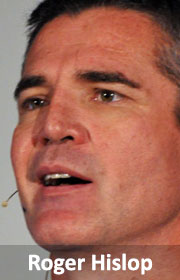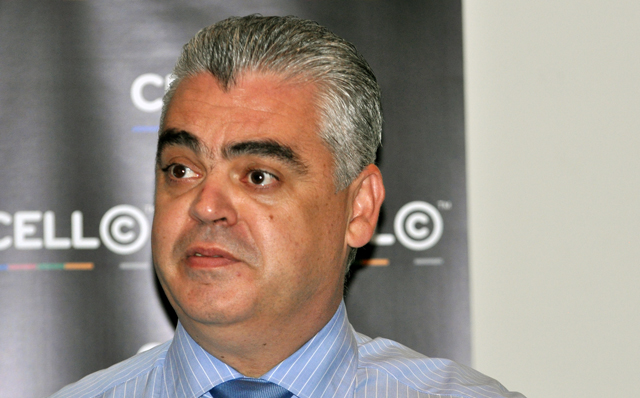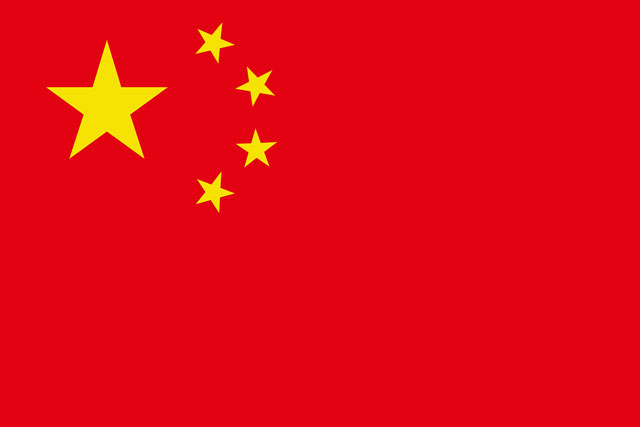 Anyone who flies into Johannesburg in the early mornings during winter will be familiar with the atmospheric inversion layer, where air near the ground is cooled by the unheated swimming pools of the struggling middle classes. The cool air traps pollutants beneath warmer layers sitting higher up. Your plane descends towards OR Tambo International Airport through the clear Highveld skies, but all you have eyes for is the thick, sickly brown miasma hanging over the city.
Anyone who flies into Johannesburg in the early mornings during winter will be familiar with the atmospheric inversion layer, where air near the ground is cooled by the unheated swimming pools of the struggling middle classes. The cool air traps pollutants beneath warmer layers sitting higher up. Your plane descends towards OR Tambo International Airport through the clear Highveld skies, but all you have eyes for is the thick, sickly brown miasma hanging over the city.
The Jo’burg Smoke, where the filthy, impenetrable pollution that chokes the inhabitants on the ground below is capped by crystal blue skies.
The exact opposite happens in the regulation and governance of South Africa’s telecommunications sector. The lower levels of our regulators and government departments are pretty clear, transparent even — available for dialogue, demonstrating sound thinking, presenting rational conclusions. But at some point this clarity flips … into an opaque mess. Decisions coming down from the highest levels of government are mysterious where they’re not pernicious; ranging from the curiously irrational to the dangerously wrong. All you can smell is political infighting, and the obstinate application of state interventionism.
I’ve met with any number of people from communications regulator Icasa, from the department of telecoms & postal services, from the Competition Commission. In every meeting I was impressed with the bureaucrats (and I mean that word in the strict sense, not the pejorative). They are switched on. They understood the industry, the context, the technology, the issues, the players. They understand the competitive landscape, and the very real issues South Africa has with a lack of diversity of new entrants, of the leaden dominance of the big three operators, and the needs of the public for a better deal.
So, how come our policy reads well in draft, but is gazetted in infamy, that officials stand up and make excellent points in stakeholder engagements, but final decisions leave the industry scratching its collective head?
Four examples.
First, let’s look at the Competition Commission’s findings and recommendations regarding Vodacom’s acquisition of Neotel. Get your copy from the ever-comprehensive Ellipsis resource library. It’s 178 pages long and exhaustive in its analysis. Page after page, it outlines how Vodacom’s already significant market power will become all-crushing superpowers.
Given Neotel’s spectrum, the commission concludes that Vodacom wins, wins big, and wins conceivably forever (read summary §11 and §15), and won’t play nice (§441: “historic competitive behaviour of Vodacom suggests it will not lower prices”).
It then does a 180-degree flip and recommends approval, subject to the mildest of conditions. A bit of a black economic empowerment restructuring, some curbs on layoffs, and that it spends money on roll-out (that it’s already going to do) and don’t use Neotel’s spectrum for two years.

For two years, during which Vodacom can refine its business modelling and radio planning and do the massive amounts of equipment deployment, software changes and technical testing (allowed under the conditions). As Cell C’s Jose Dos Santos puts it: “Vodacom, go build your network, and in two years’ time, you just switch it on.” Telkom, MTN, Cell C … all they can do is sit on their hands and wait, impotent and seething.
Example two is the Icasa hearings on this matter. The regulator, which is specifically mandated to build competition in the telecoms sector, heard chapter and verse on how South Africa’s poor regulatory definition and processes left holes you could drive base stations through. It heard numerous testimonies (from competitors, analysts and independent industry bodies) that if Vodacom could get control of Neotel’s spectrum it would disastrously hamstring competition. Icasa heard that the absolute priority should be releasing much-needed spectrum to all players (including new entrants), and that this merger must not result in spectrum transfer until everyone gets a fair crack.
Councillors nodded sagely, and then made their decision. Again, Vodacom got exactly what it wanted. The conditions were a sop. BEE conditions? South Africa’s largest companies have Olympic quality skills in corporate restructuring to tick BEE boxes. The “stringent” conditions: “At least 25% of any broadband roll-out to be undertaken by Neotel following the implementation of the transaction [must] be undertaken in underserviced areas.” Don’t make me laugh! Didn’t Neotel have stringent universal service conditions for its launch? Check out page 10 of a BMI-T/Mkhabela Huntley Adekeye review (PDF) of how it met those obligations.
The wording of the roll-out target is egregiously vague. What is 25% of a broadband roll-out? Could you include the long-distance fibre passing that underserviced town carrying backhaul? Twenty-five percent of capacity rolled out, or 25% of build cost? Is existence of satellite or mobile coverage considered “roll-out”?
I could be unfairly painting Neotel and Vodacom with a rough brush. They may fully intend to be good corporate citizens. But how can a regulator that so clearly outlines the problem with the merger then set conditions that are so devoid of substance?
Both the Competition Commission and Icasa could have imposed something with teeth, perhaps mandating a separation of wholesale and retail? It’s worked very effectively at Telkom. It’s kept Telkom honest, and ensured the survival and even thriving of a large, independent market of competitive telecoms providers. Perhaps they should have even considered outright prohibition the transaction because of the very real impact it will have on competition. They could do this. They should.
Moving on.

Example three is the South Africa Connect broadband policy. It’s a really good document, outlining very clearly the problems, the market structural issues and the remediation that could fix the horrible state of broadband access for most South Africans. The policy’s main principles: more competition from a greater choice of players, less government red tape and a mixture of carrot and stick to make operators share infrastructure to improve efficiencies.
And then … government announces that the erstwhile abusive monopolist should be the anointed roller-outer of the national broadband network (in a backroom, no-bid decision).
Example four is the appalling Film and Publication Board draft policy on online content. Discussion documents, stakeholder briefings: all fairly sensible in their thinking. Then the draft policy that was gazetted? Nothing more needs to be said about this abomination that has not been said by Julie Reed.
The inversion layer, over and over. All signs point to the right choices being made, and then the wrong choice happens.
If the exception proves the rule, then the most recent Competition Commission ruling recommending prohibition of the Telkom/MTN roaming and radio network outsource deal is that exception. It’s arguably a good deal — both networks will still compete for customers through their own marketing and service. Both networks will be on common ground in terms of the pipes they deliver the service over, except it will be more efficiently used. While the Vodacom/Neotel and Telkom/BCX deals are explicitly described as being anticompetitive (but still somehow okay), the MTN/Telkom deal is at best good for consumers, at worst marginally problematic. Yet this was the deal that was not okayed.
It smells. Government has been obsessively concerned with keeping Telkom to itself, even blocking the Korean KT Corp deal that could have done great things for South Africa’s telecoms competitiveness.

I recently attended a workshop at the Wits University “Internet Week 2015” — a roomful of heavyweights from academia, business, consultancies and government. This inversion layer question turned into a breakout topic.
Why are the final decisions made by government so wildly divorced from the generally practical and sensible discussions, consultations and drafts we see upfront?
The conclusion – two main factors.
Political interference at a ministerial level based on ideology, vested interests and (one has to assume) naked power mongering by the ruling party. Ideologically, the ANC government repeatedly demonstrates a profound hostility to private business, with a fundamental belief that it can’t be trusted to act in the public good. That being said, it likes the money it makes.
The second is a lack of clear policy, or adherence to it, by the political class of government. This means that the bureaucracy is never sure which way the wind is blowing, whether government will have their department’s backs when they make tough decisions. How can you be confident that you will be supported in making hard calls when your boss changes every few months or is nothing less than capricious?
When as a career bureaucrat you’re too scared to stick your neck out in any way, because you’re standing on a castle made of quicksand. Those that need to make decisions that may be unpopular, or contentious, or require the courage of conviction, are left dangling in the wind. So they take the safe options, the easy out. Or they punt the decision to whoever may be left to try pick it up down the line.
Why be brave when bravery is not rewarded?
Is there a solution? Until the politicians start acting in the interests of the country, instead of the party, not much. This is where the discussion gets depressing, because ANC thinking is all about state interventionism, with China as its model.
But we have to try, because our beloved country needs someone, anyone, to try. One of the ideas that came out of the Internet Week discussion group included fixing the performance promises of section ministry heads to be hard goals, not “motion towards”. Release spectrum. Pass regulations. Cut red tape. Conduct and publish research. Declare concrete roadmaps. No more waffle. Secondly, mandate transparency in decisions. No more backroom deals. Icasa is required by law to publish minutes of council meetings. It does. Read them here. There is nothing to learn from them. Why were decisions made, and how? Who knows.
Also, ensure that policies and regulations are in accord, and are delivered on, that a progressive national policy is not sidestepped by a particular ministry or local government department. Perhaps this oversight could be done by the Public Service Commission or the department of performance monitoring & evaluation. Did you know they existed?
Too much to ask? For our battered and cynical electorate, yes.
All we can do is appeal to the good people toiling away in all those offices in Pretoria: have courage. You know what the South African telecoms sector needs: more competition, efficient regulation, less red tape. Do what you know is right. Make the tough and unpopular decisions. Your political masters may haul you over the coals, but console yourself: it’ll only be six months before they’re gone and a new broom sweeps in.
- Roger Hislop is an engineer in the research and innovation group at Internet Solutions. He writes here in his private capacity




